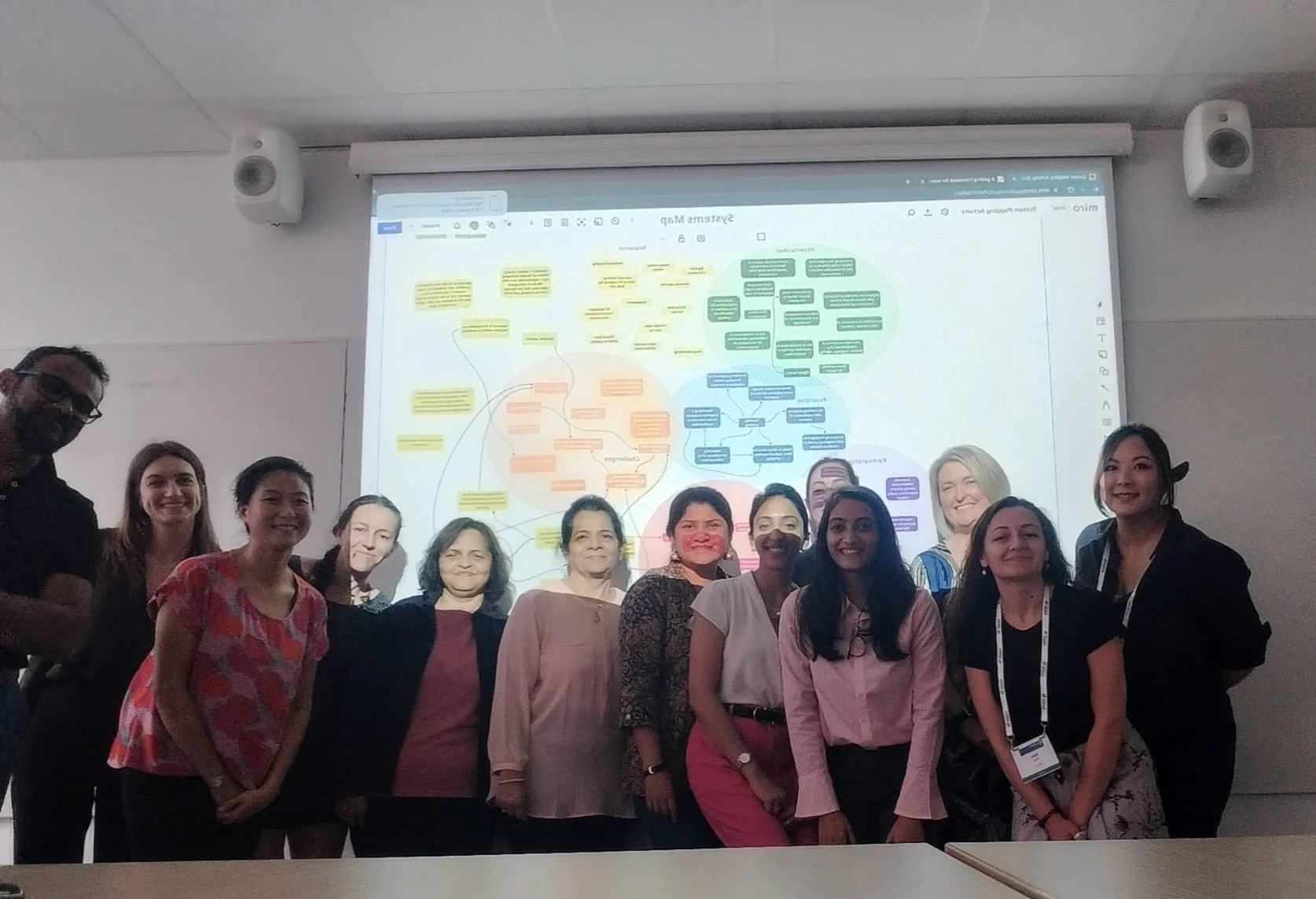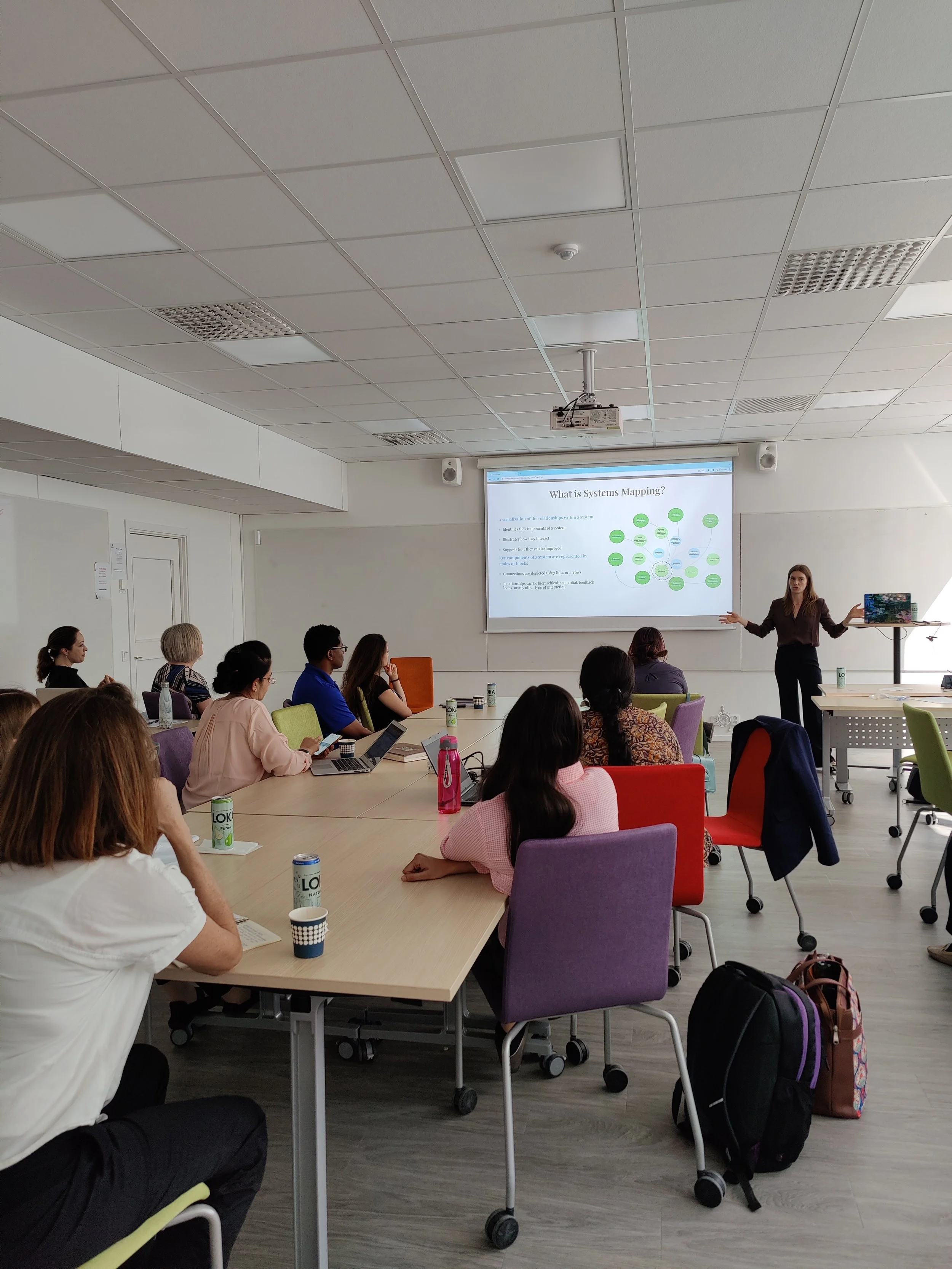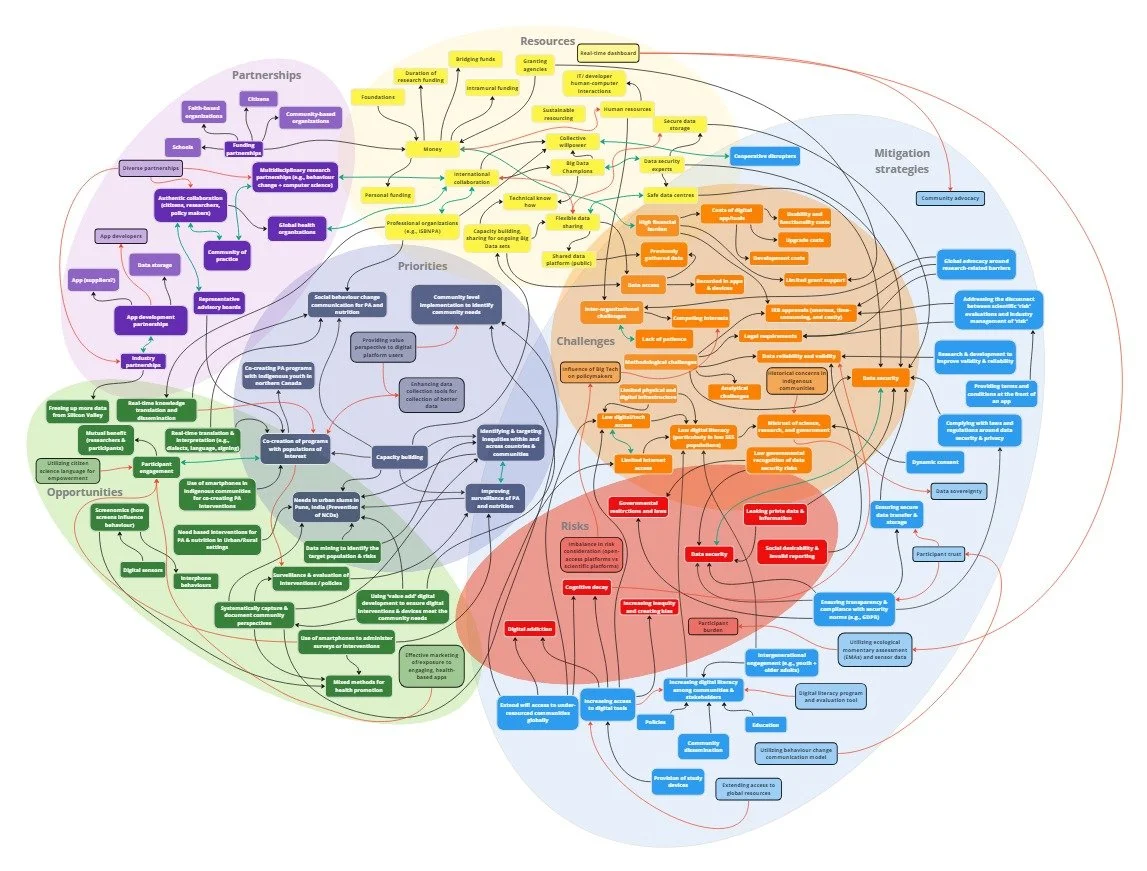Digital Citizen Science Observatory
A key challenge in monitoring, managing, and mitigating public health crises, whether communicable or non-communicable, in the age of polycrisis, is the need to coordinate clinical decision-making with systems outside of health (i.e., food systems, social welfare).
In this digital age, human engagement with and through Internet-connected devices generates an enormous amount of big data, which can be used to address complex, intersectoral problems. The use of these big data, which traditionally exist outside of healthcare systems, has significant implications for prediction and prevention of communicable and non-communicable diseases.
To address significant challenges and gaps in utilization of big data across sectors to predict and prevent public health crises, a Digital Citizen Science Observatory is being developed by the Digital Epidemiology and Population Health Laboratory by scaling up existing digital health infrastructure.
The Digital Citizen Science Observatory is informed by the Smart Framework, and built on Precise Health Inc’s decentralized technology, which leverages ubiquitous devices for ethical surveillance, integrated knowledge translation, and real-time interventions. The Digital Citizen Science Observatory will be operationalized by implementing a rapidly adaptable, replicable, and scalable progressive web application that repurposes jurisdiction-specific cloud infrastructure to address citizen-specific needs within and across jurisdictions. The observatory is designed to be highly adaptable for both rapid data collection as well as rapid responses to emerging and existing crises prioritized by jurisdictional decision-makers.
Data sovereignty and decentralization of technology are core aspects of the observatory, where citizens own data they generate, and researchers and decision-makers are able to repurpose digital health infrastructure by scaling it up or down. The ultimate implication of the Digital Citizen Science Observatory is to break existing jurisdictional silos in addressing existential crises by ethically leveraging big data from citizens, responding rapidly to evolving needs, and by sharing evidence securely across jurisdictions to inform local solutions to global problems.
Last year at the ISBNPA (International Society of Behavioral Nutrition and Physical Activity) conference in Uppsala, Sweden, the DEPtH Lab conducted a "Dare to Share" workshop to collaboratively build a systems map in real time. This workshop gathered valuable input from global and intersectoral partners interested in leveraging DiScO to advance active living research. Our findings from this workshop, which will be used to inform DiScO’s implementation, are now captured in a comprehensive manuscript currently under review in the journal of Frontiers Public Health.
What does DiScO offer?
Real-Time Insights: DiScO provides real-time data-driven insights that can help decision-makers act rapidly in response to health challenges, improving both management and prevention of crises.
Scalability Across Countries: DiScO can integrate with existing apps and platforms, allowing it to be scaled rapidly across countries and regions, making it a global solution.
Citizen-Led Change: DiScO involves citizens in creating solutions for their community, making them key stakeholders in shaping public health responses through their mobile devices, creating a sense of collective ownership and impact.
Integrating Data Silos: By bringing together data from various sectors, DiScO enables cross-sector collaboration that helps solve complex problems in a more holistic way.
Rapid Evaluation of Population Health Interventions: DiScO enables researchers to quickly assess the impact of public health interventions by analyzing large-scale data, allowing for fast adaptations and improvements.
Internet Equity and Data Sovereignty: DiScO promotes equity by ensuring that all citizens, regardless of location or socioeconomic status, maintain control over their data, supporting both privacy and accessibility to health solutions.
Interested in collaborating? Please feel free to reach out here or email us depthlab@uwo.ca.



